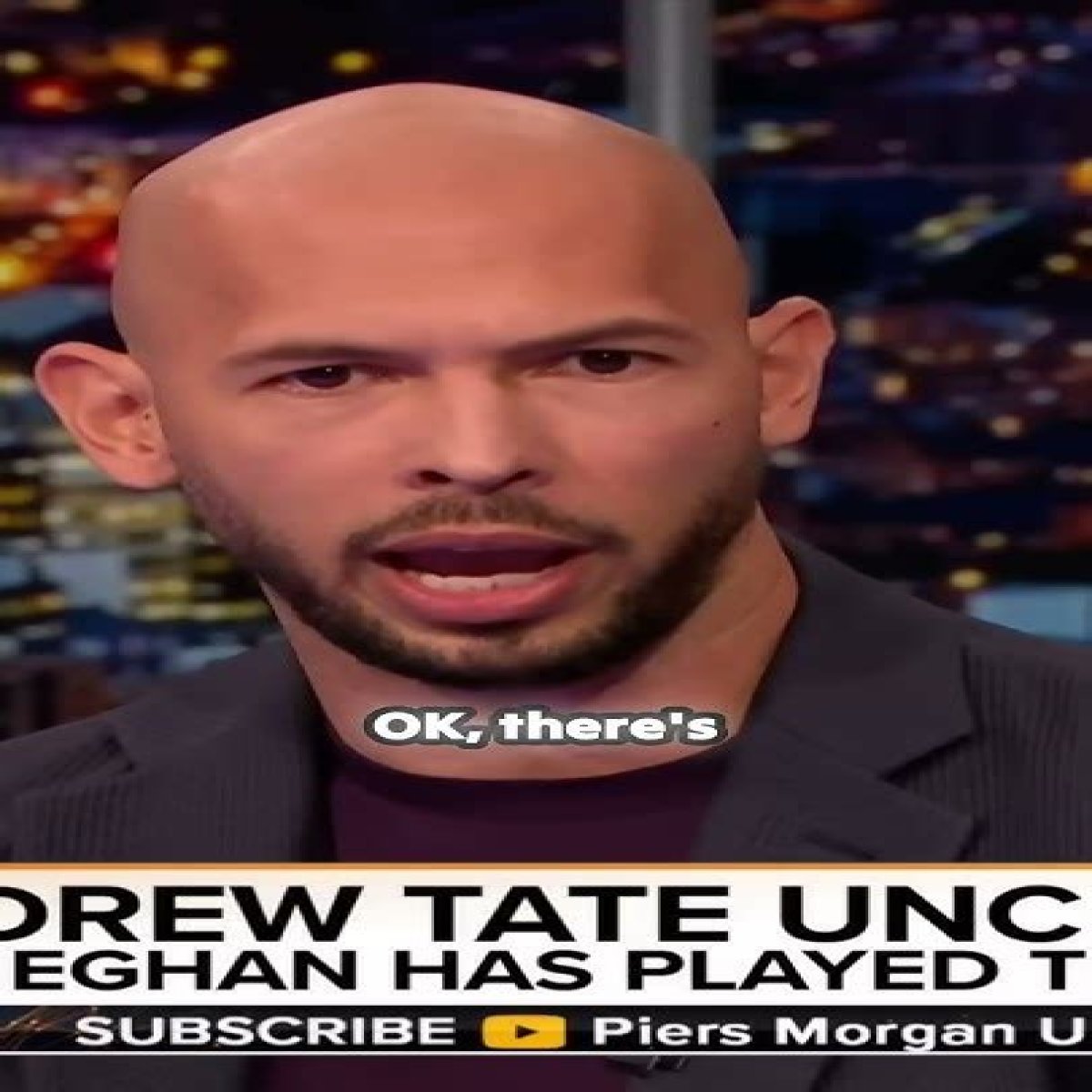Andrew Tate, a polarizing figure in the world of social media and self-help, has garnered both admiration and disdain for his outspoken views. His bold statements and provocative behavior have sparked conversations about race, identity, and social dynamics. As a former kickboxer turned self-proclaimed entrepreneur, Tate's rhetoric has raised eyebrows and ignited debates about racism and discrimination in contemporary society. While some applaud his unapologetic attitude, others criticize him for perpetuating harmful stereotypes.
In recent years, the topic of Andrew Tate's racism has become a focal point in discussions about his influence and the impact of his words. Many have pointed out that his comments on various social issues often border on controversial, leading to accusations of fostering a racist mindset. This article aims to explore the intricacies of Tate's statements, the reactions they provoke, and their implications on societal attitudes towards race.
As we delve into the subject, it is crucial to recognize how celebrity culture can shape public perception of race and identity. Andrew Tate's brand of masculinity and his views on race have significant implications, not just for his followers but for broader societal norms. In the following sections, we will examine Tate's biography, the specific accusations of racism against him, and the societal implications of his rhetoric.
What is Andrew Tate's Background?
Andrew Tate, born Emory Andrew Tate III in Washington, D.C., on December 1, 1987, is known for his multifaceted career as a kickboxer, businessman, and social media influencer. Growing up in a diverse environment, Tate's experiences shaped his views on various societal issues. Here’s a brief overview of his biography:
| Detail | Information |
|---|---|
| Full Name | Emory Andrew Tate III |
| Date of Birth | December 1, 1987 |
| Birthplace | Washington, D.C. |
| Occupation | Kickboxer, Entrepreneur, Social Media Influencer |
| Notable Achievements | Multiple-time World Kickboxing Champion |
| Social Media Following | Millions across platforms |
What Accusations of Racism Has Andrew Tate Faced?
Andrew Tate has faced numerous accusations of racism, particularly due to his comments regarding different ethnic groups and social issues. Critics argue that his statements often perpetuate stereotypes and contribute to a culture of division. Some notable instances include:
- Comments on race and intelligence, which many found offensive and discriminatory.
- Generalizations about certain ethnicities, leading to accusations of promoting racial stereotypes.
- Online behavior that critics argue encourages a hostile environment towards specific groups.
How Does Andrew Tate Respond to Accusations of Racism?
In response to the accusations, Andrew Tate often downplays the criticism, asserting that his views are misunderstood or taken out of context. He maintains that he speaks candidly about race and identity, aiming to challenge societal norms. Tate's supporters argue that his comments are intended to provoke thought and discussion rather than promote hatred. However, this defense raises questions about accountability and the influence of rhetoric in shaping public attitudes.
What Are the Social Implications of Andrew Tate's Rhetoric?
The impact of Andrew Tate's statements extends beyond mere controversy; they have significant implications for societal attitudes towards race and identity. His followers often emulate his views, leading to a ripple effect that can reinforce existing prejudices. This phenomenon raises critical questions about the responsibility of public figures in shaping discourse around sensitive topics like race.
How Does Celebrity Culture Influence Perceptions of Racism?
Celebrity culture plays a pivotal role in shaping public opinion. Figures like Andrew Tate wield considerable influence, particularly among younger audiences. The way they approach topics like racism can either challenge or reinforce societal norms. In Tate's case, his provocative style often draws attention, but it also risks normalizing harmful stereotypes and fostering division.
What Can We Learn from Andrew Tate's Controversies?
Andrew Tate's controversies serve as a case study in the complexities of race, identity, and celebrity culture. They highlight the need for critical engagement with the statements of influential figures. Here are some key takeaways:
- Engaging in open dialogues about race is essential for fostering understanding and combating prejudice.
- Public figures must recognize their influence and the potential consequences of their words.
- Criticism and accountability are crucial in ensuring that harmful rhetoric does not go unchecked.
Is There Hope for Change in Andrew Tate's Views?
While Andrew Tate's views may seem entrenched, there is always potential for change. Engaging with diverse perspectives and fostering open discussions can challenge existing biases. For Tate, reflecting on the impact of his words and embracing a more inclusive dialogue could pave the way for positive change.
What Role Does Education Play in Addressing Racism?
Education plays a crucial role in combating racism and promoting understanding. By exposing individuals to diverse perspectives and encouraging critical thinking, society can work towards dismantling harmful stereotypes. This approach is particularly important for younger audiences who are influenced by figures like Andrew Tate.
Conclusion: Navigating the Complexities of Andrew Tate and Racism
In conclusion, the discourse surrounding Andrew Tate and racism is multifaceted and complex. His provocative statements have sparked important conversations about race, identity, and the responsibility of public figures. As society grapples with these issues, it is essential to engage in open dialogues, hold influential figures accountable, and foster an environment that promotes understanding and inclusivity. By doing so, we can work towards a more equitable future, free from the shackles of racism and division.
Sophia Rain: A Deep Dive Into The Viral Video SensationUnveiling The Love Story Of Jo In Sung And His WifeUnmasking The Enigma: Sophie Rain And Her Spider-Man Connection
